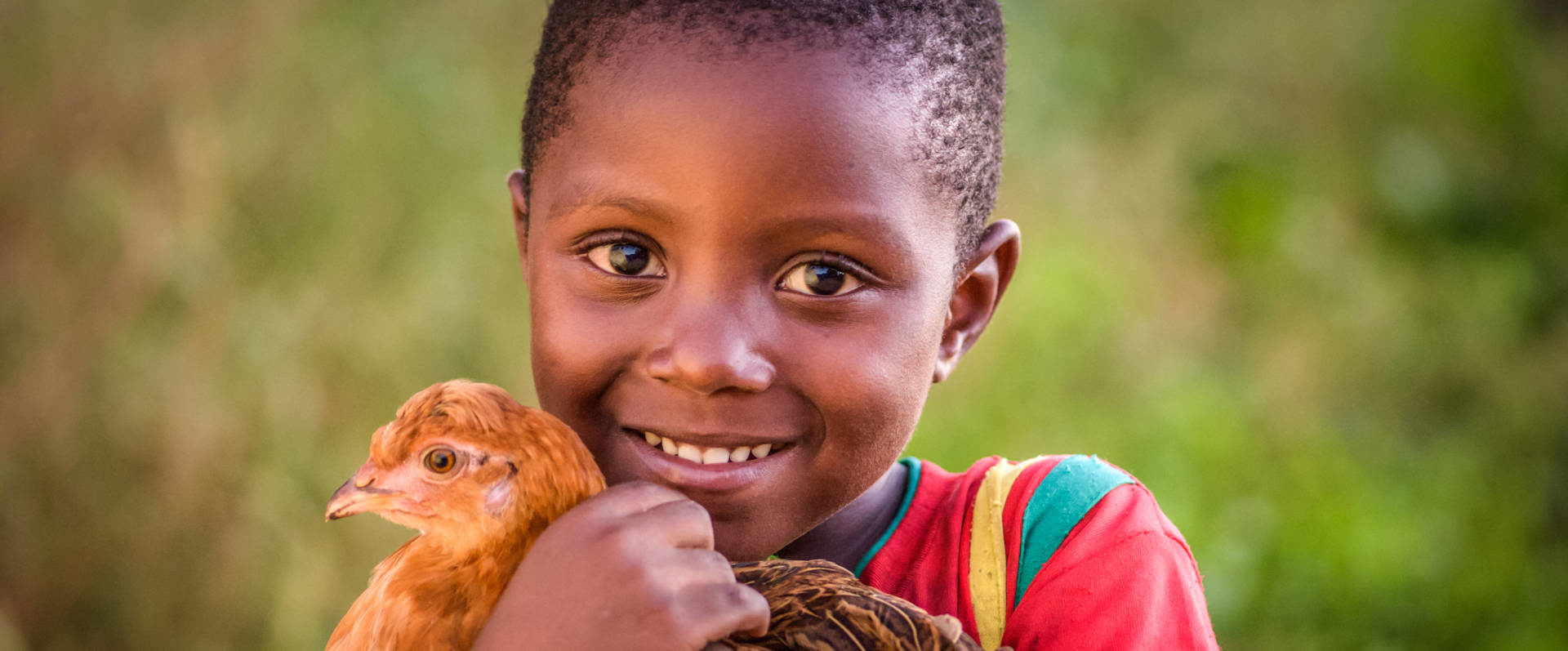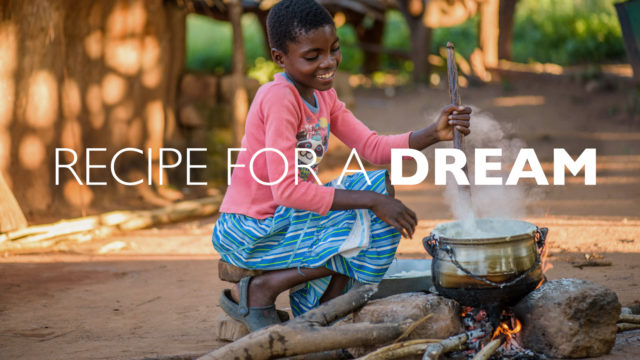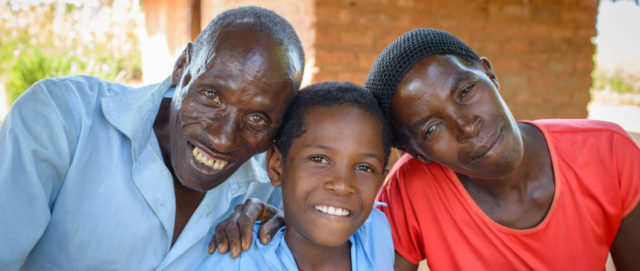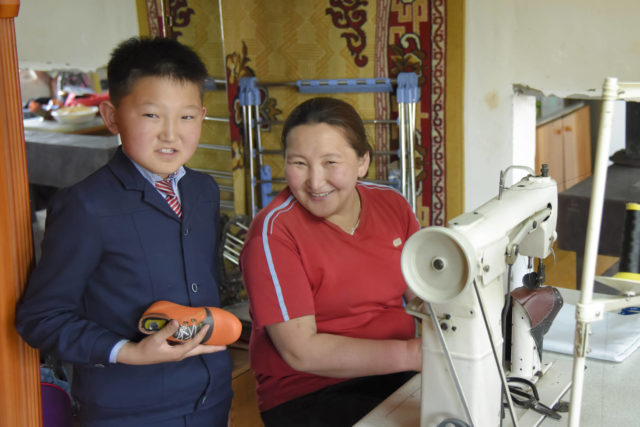“He’s a town boy.” That’s how World Vision Zambia communicator Agatha Mali describes 4-year-old Chansa Dibula.
She means that his life is easier than many other children in rural southern Zambia. He’s not malnourished. He’s physically healthy. He doesn’t have to walk for miles to gather water. His family has reliable income so that when he’s old enough, he’ll be able to attend school. They’ll have the money for the fees, uniforms, and school supplies.
That’s still a few years away. Right now he’s content to spend his days at the home of his maternal grandmother, Esnart Sianchwale. He loves hopping around on one foot across the family compound. Sometimes he’ll play soccer with his uncle, 9-year-old Resheal, who’s more like a brother to him. Life is good for these two boys.
But Esnart, who is also Resheal’s mother, remembers a time when they only had hunger and heartache.
‘The story turned
upside down’
‘The story
turned upside
down’
Esnart’s first husband died in 1999, leaving her to care for her children and elderly mother. He was the family’s breadwinner so his death meant disaster for the family.
“When he died, the story turned upside down,” says Esnart’s 18-year-old son, Bee. “It was easy to notice the difference. I used to wear nice clothes. I used to eat every day.”
Both Bee and his older brother, Under, excelled in their studies, but without food to fortify them, they faltered. “I would lose concentration in school. I wouldn’t want to be with my friends because I was hungry,” says Under, now 25. He dropped out of school in grade 10 and never returned.
Bee also struggled in school. “My performance was being affected. I couldn’t concentrate,” he says. He had to repeat sixth grade because he missed a full term. “It was hard to cope with hunger.”
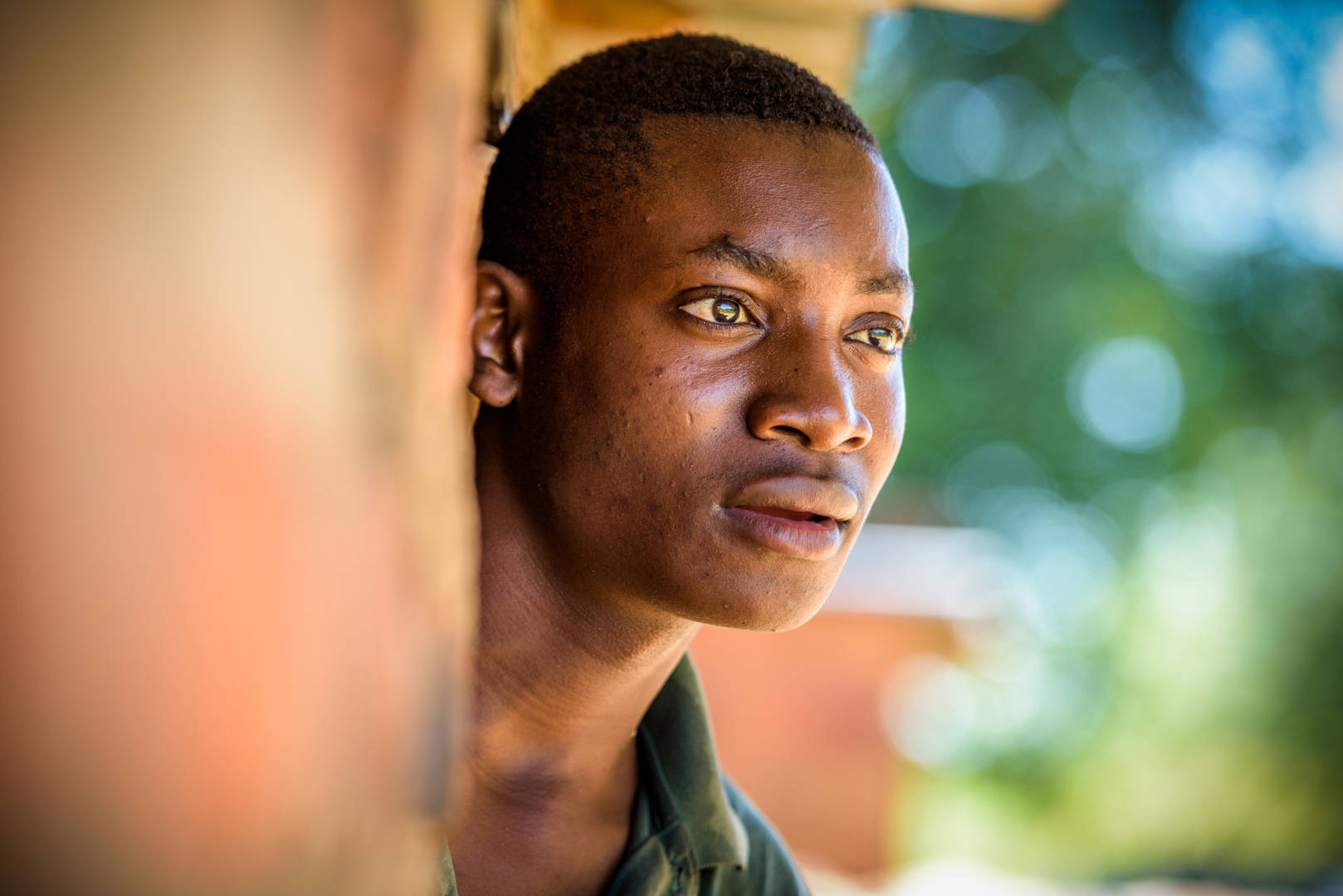
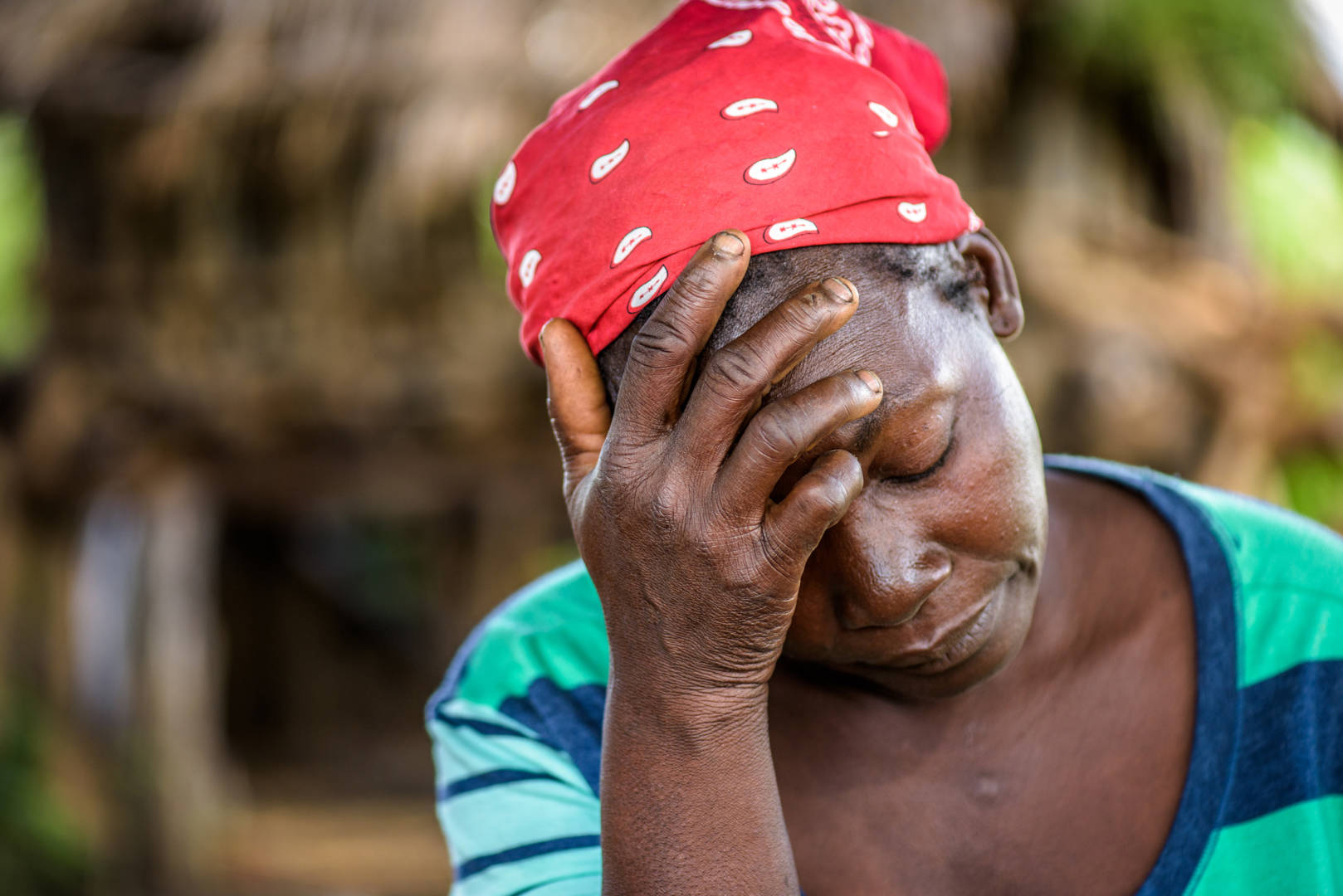
When Esnart found piecework, she earned just a bit of mealie meal — ground corn used as a staple in Zambia. Sometimes that was all they would eat for a day, and many times they had no food.
Esnart’s own struggles with hunger were nothing compared to the guilt and anguish she felt over watching her children suffer. The children came to her and said, “’Mommy, we are hungry. We need food.’” She sometimes ran away from them into the bush just to sit alone with her grief. “Why are my children going through all this? What am I going to do? Am I going to manage to take them out of this situation? Am I going to be able to see them reach their potential?”
The answer to the last two questions seemed to be ‘no.’ Esnart remarried in 2003 and hoped that things would improve, but frequent fights between husband and wife meant no return to the better days of her first marriage. A few years later, Esnart became deathly ill. Her husband didn’t take care of her, so she took her children and returned to her home village.
Esnart recovered from her mysterious illness. She had her HIV status checked but thankfully tested negative. A few visits from her husband and attempts at reconciliation left Esnart pregnant with her youngest child, Resheal. Ultimately her marriage failed, but things did begin to look up for Esnart’s family. It came in the most unlikely of forms — chickens.
Gift Catalog chickens
bring hope
Gift Catalog chickens
bring hope
Through World Vision’s Gift Catalog, she received four chickens and one rooster.
Owen Sikuneta, World Vision’s Community Development Worker in the area, comes from this area. He knows of his neighbors’ struggles. One of the families who stood out as having special need was Esnart’s. So when it came time to choose families to receive the chickens, he knew he would recommend her.
Before the chickens arrived, Esnart received training on best practices in building a chicken coop. She hesitated to begin because she didn’t dare to hope for a better future.
“Please make sure you’re going to do this. We are telling the truth” Owen told her. “These chickens are going to be a stepping stone to move your family from one level to another.” So Esnart got busy building the chicken coop.
“My heart was ignited with so much joy,” says Esnart. When the chickens arrived, she named them.
“I gave them names because those chickens were a gift,” she says. “I had a special relationship with those chickens.” She wanted to be able to call them and have them respond to those names.
Esnart learned about livestock management from World Vision. Experts educated her about the right foods to feed her chickens so they would produce more eggs, multiply, and thrive.
And thrive they did! From five, within a year Esnart’s animals numbered 200 roosters, 124 chickens, and eight baby chicks.
“God was so good. He made the chickens reproduce very fast, as though he was looking forward to reducing our hunger,” says Bee.
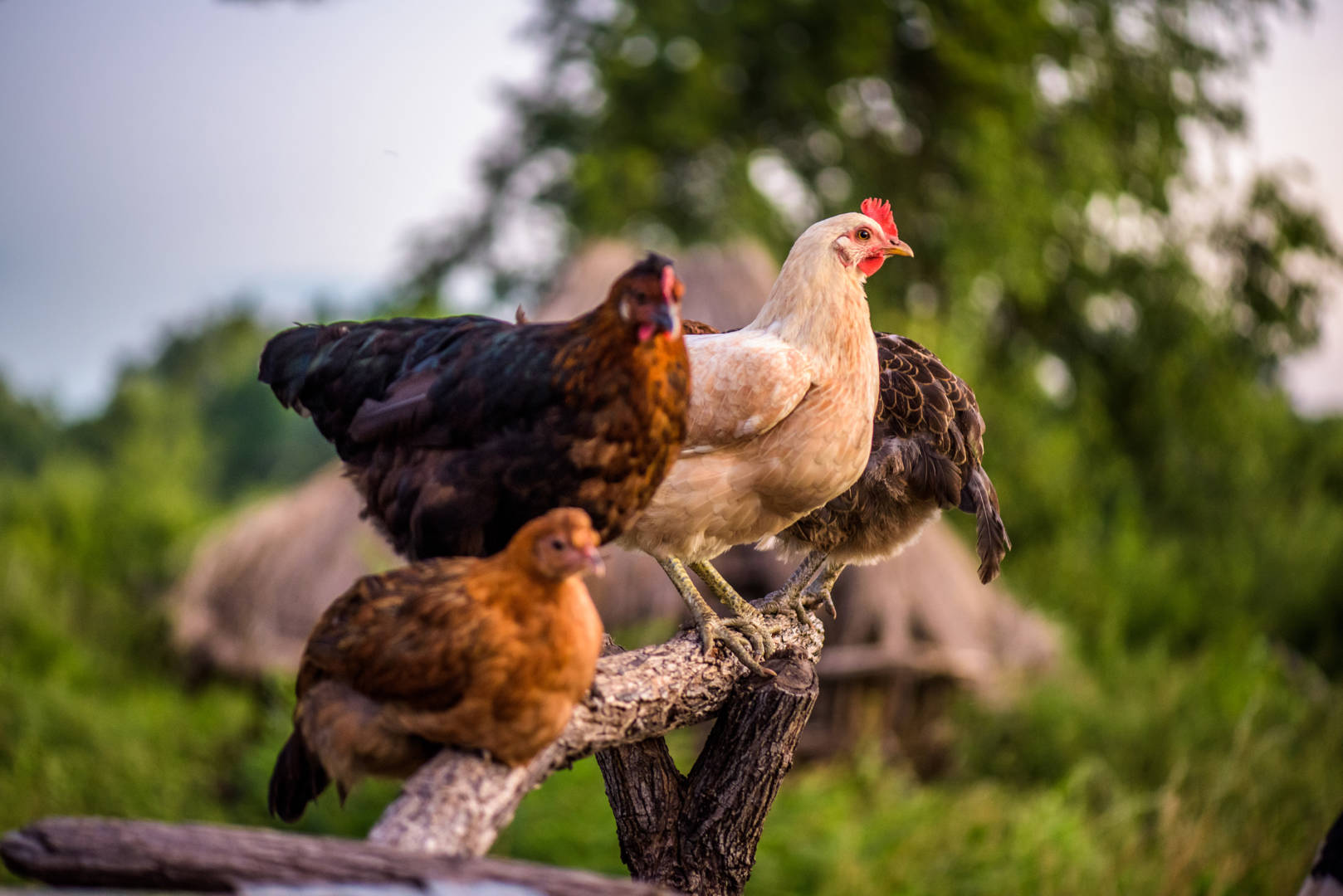
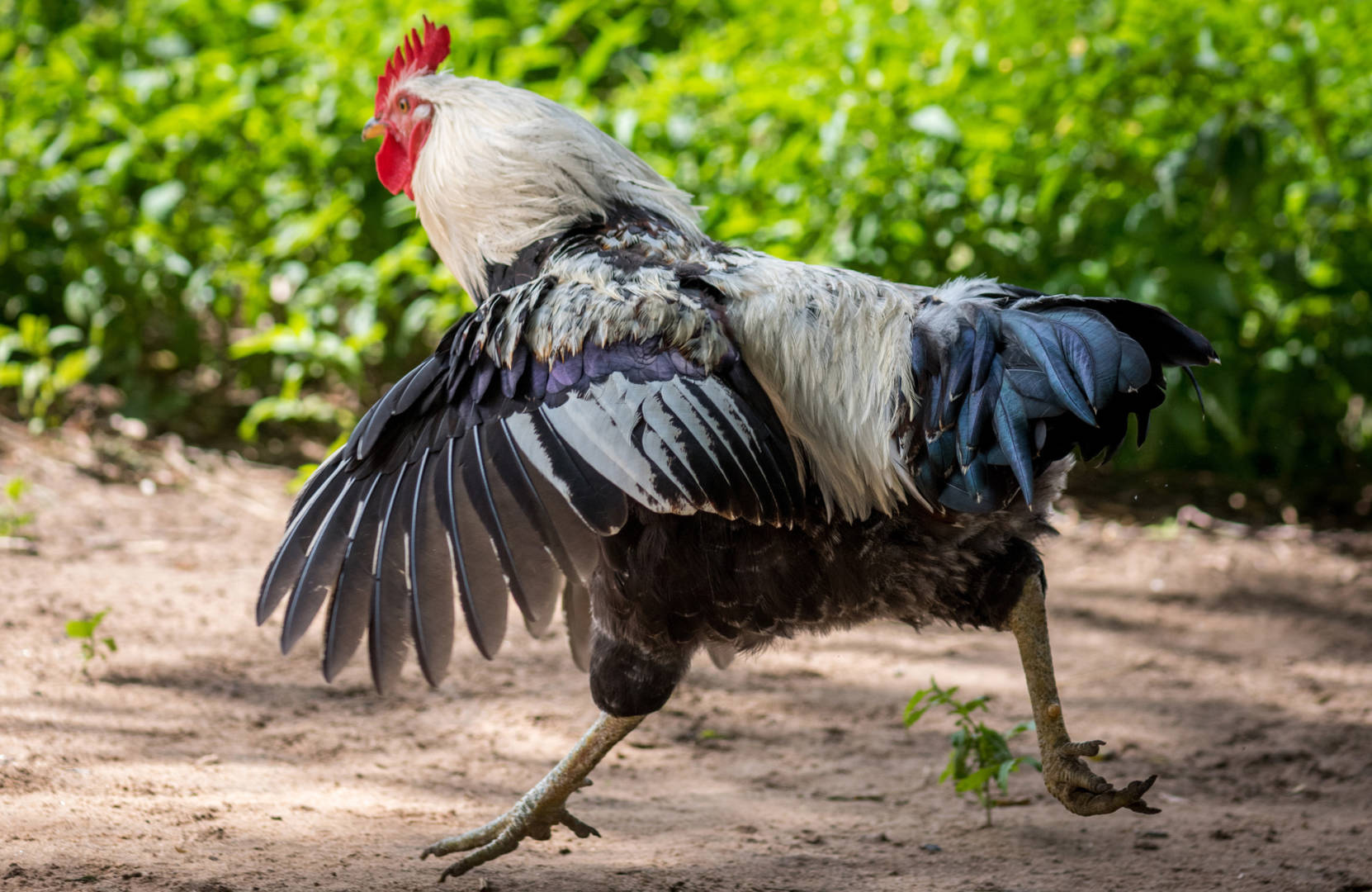
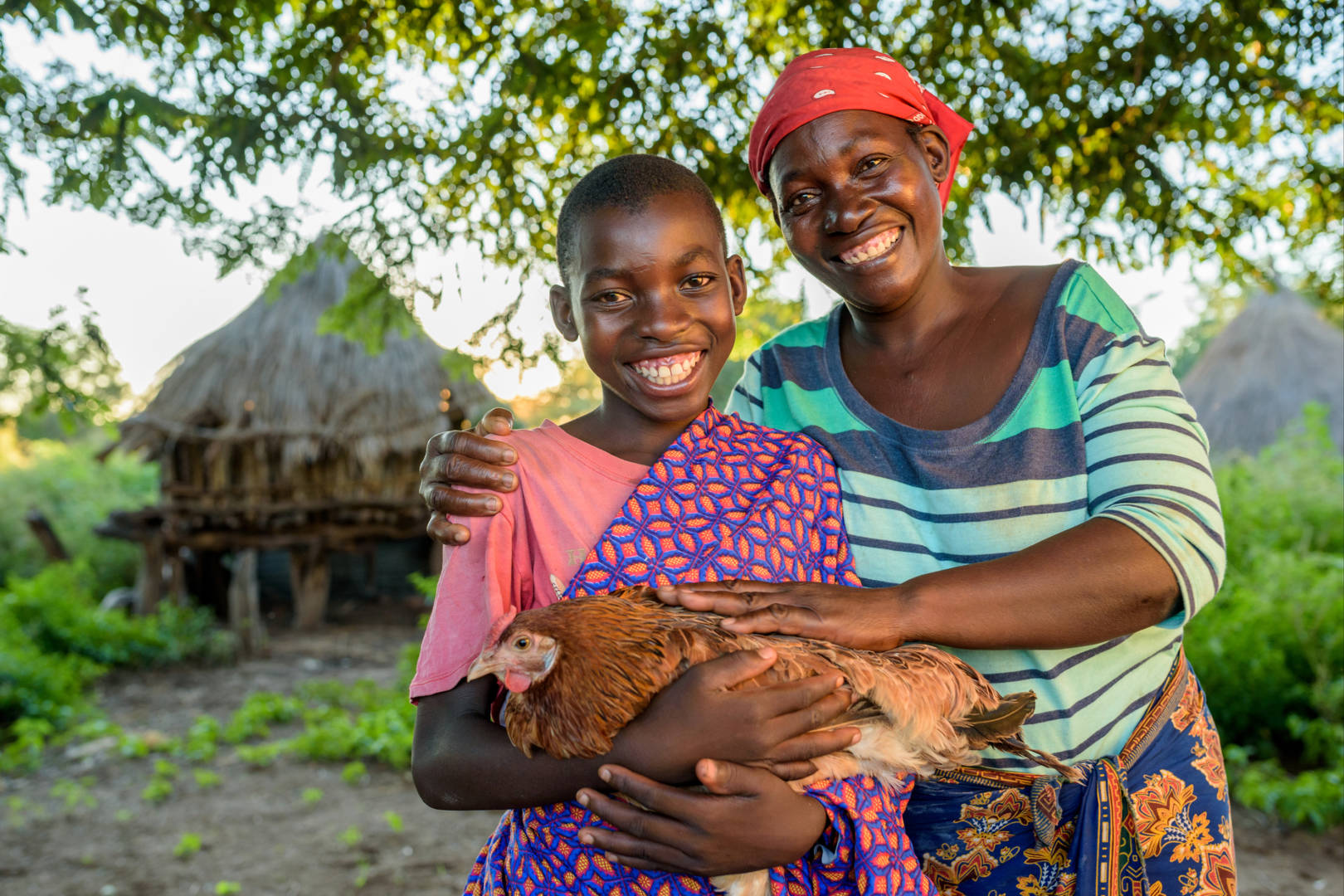
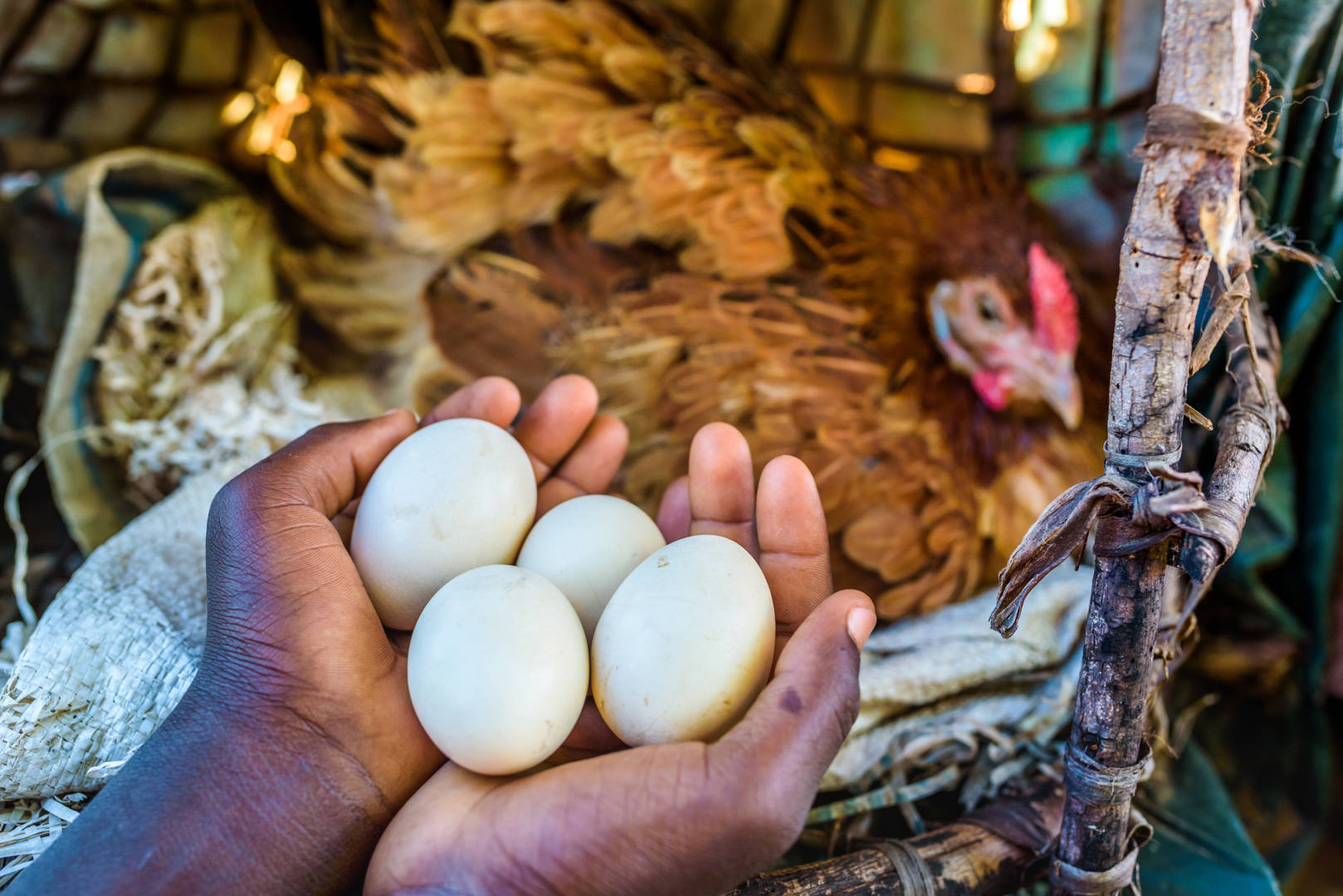
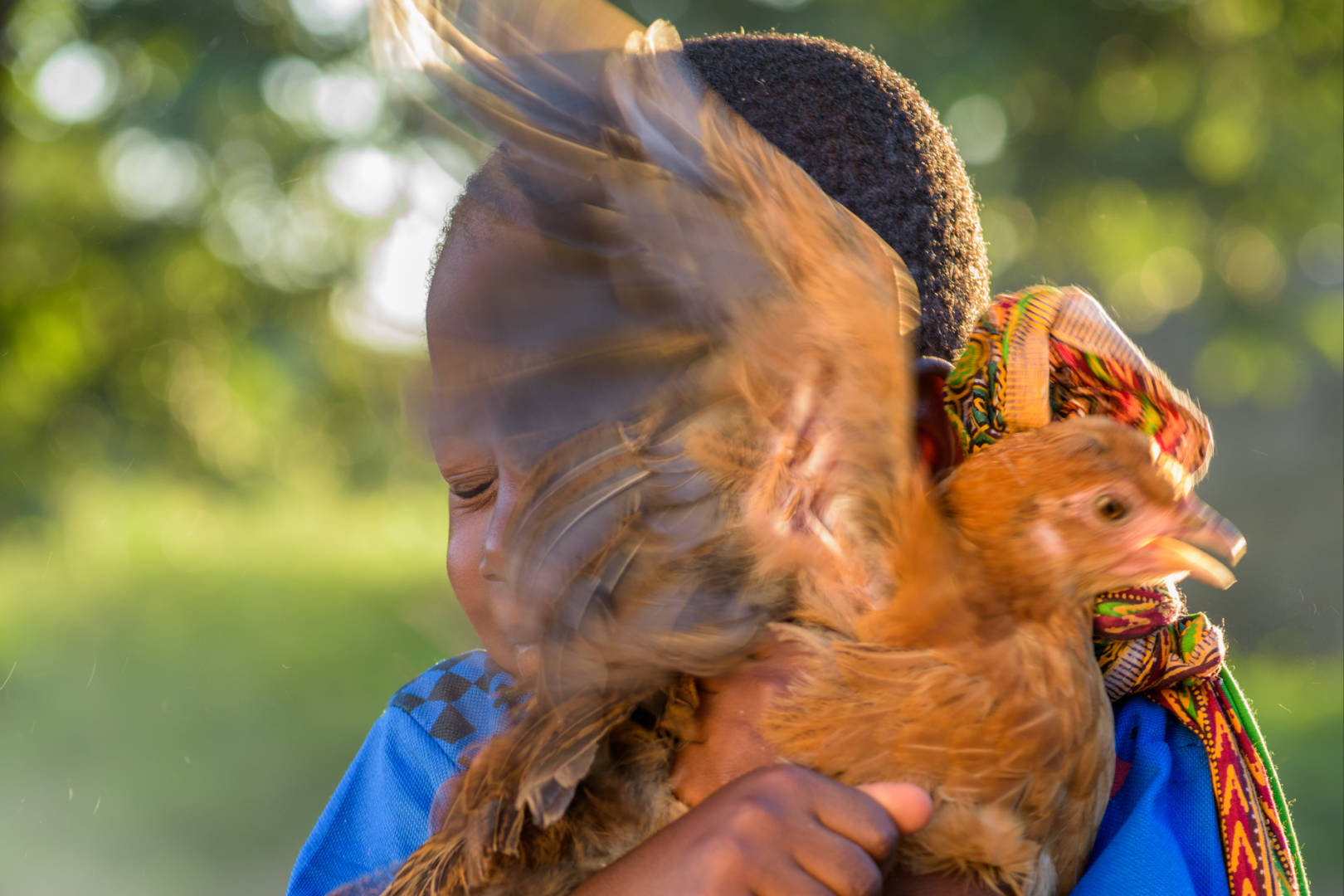
In fact, when World Vision gathered all the chicken recipients together to evaluate, Esnart’s chickens from the Gift Catalog had reproduced the most. World Vision gave her more wire for her chicken coop to accommodate her expanded brood.
When Resheal was only a tiny boy, he developed a knack for knowing which hens were ready to lay eggs. He discovered their roosting hiding places. Then Esnart would come across him with eggs boiling in a pot. He smiles shyly as she tells this story.
To this day, his favorite food is eggs with beans.
Prospering despite
hard times
Prospering despite
hard times
“The chickens have been a foundation,” says Esnart. “Without these chickens, my family would have been wallowing in poverty.”
At that time, the chickens acted as a sort of savings bank for Esnart and her family. She began selling chickens to local restaurants. Through those sales, Esnart bought turkeys and cattle along with seeds and fertilizer to increase the size of her garden.
Esnart’s family used to do all the work by hand and couldn’t grow enough food to feed even themselves. Owning cattle means they can plow their field so they’ve been able to expand the size of their crop. That means Esnart can feed her family and even have crops left over to sell.
World Vision’s Owen says, “I feel good to see my community have three meals. I don’t like seeing them suffering.”
Most mornings, Esnart works in one of two fields filled with maize, mbambara nuts, and cowpeas. When school is out, Resheal joins her.
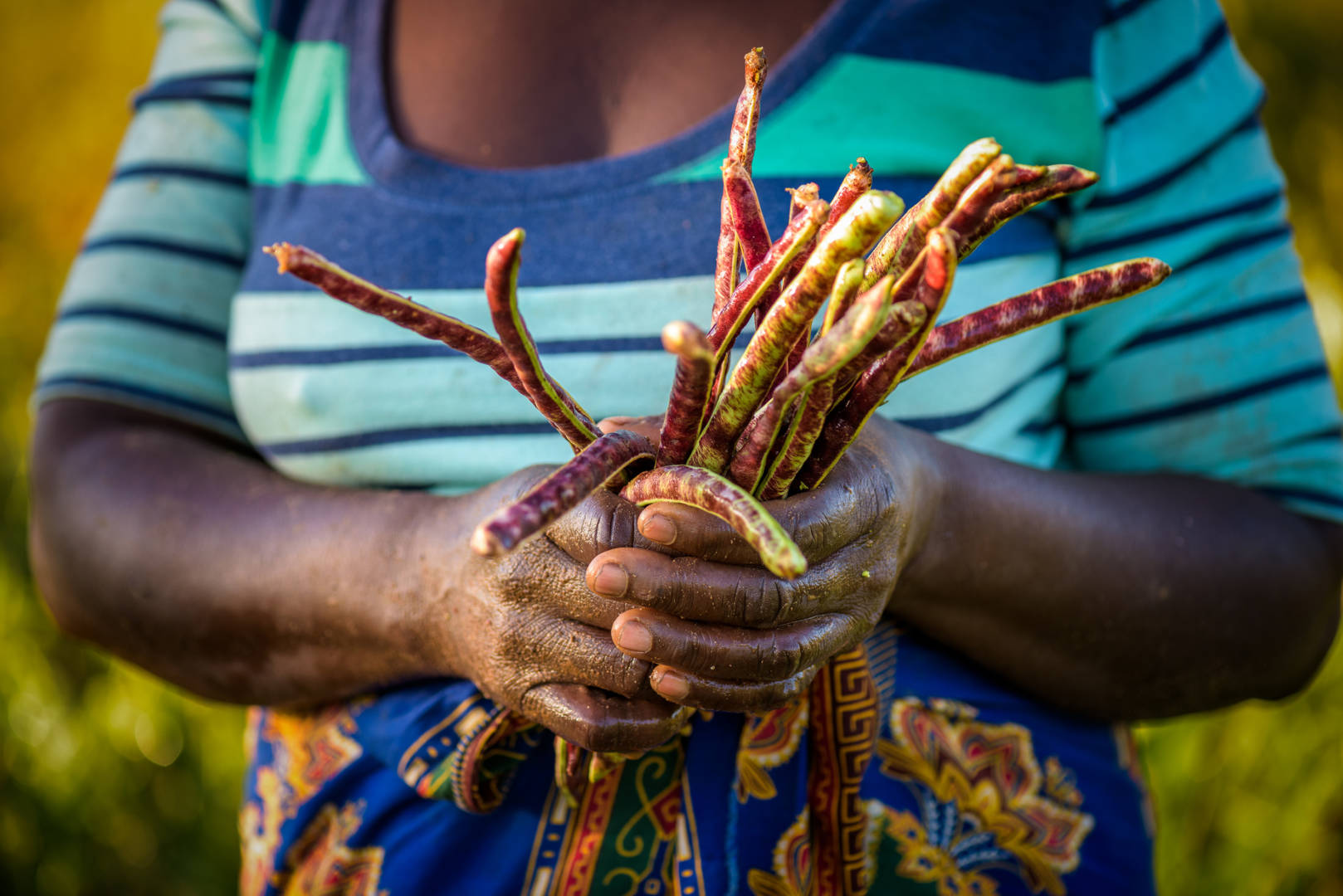
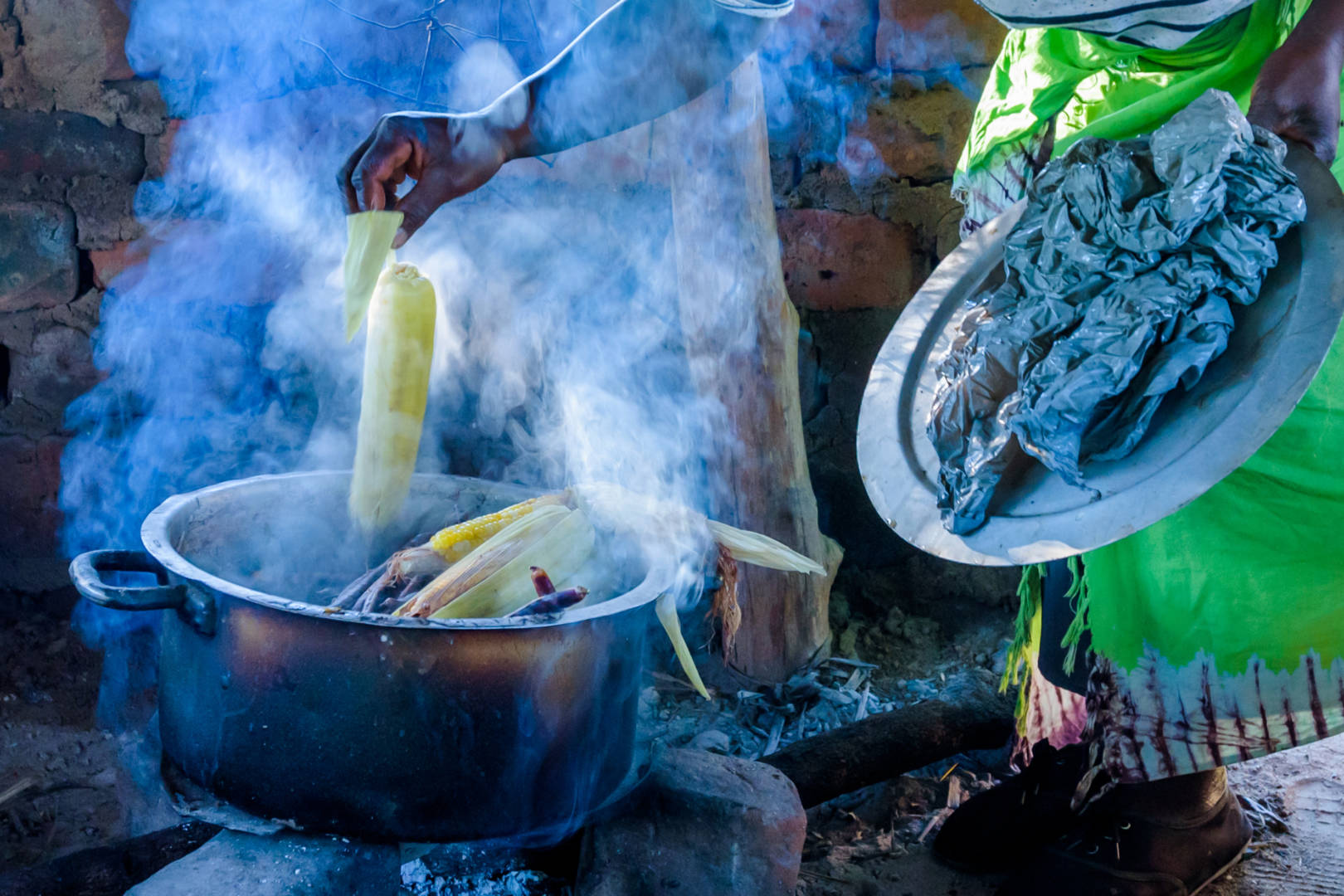
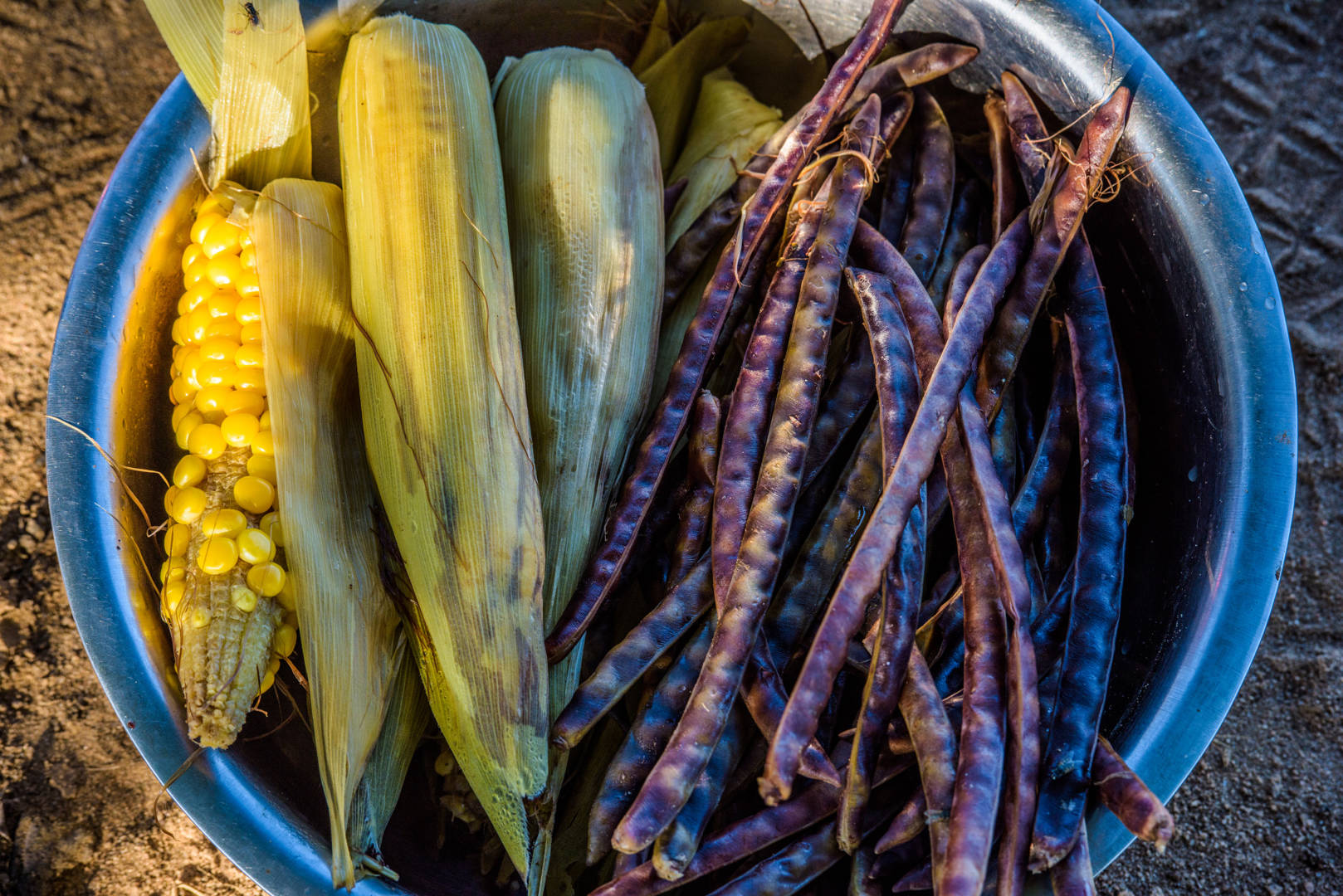
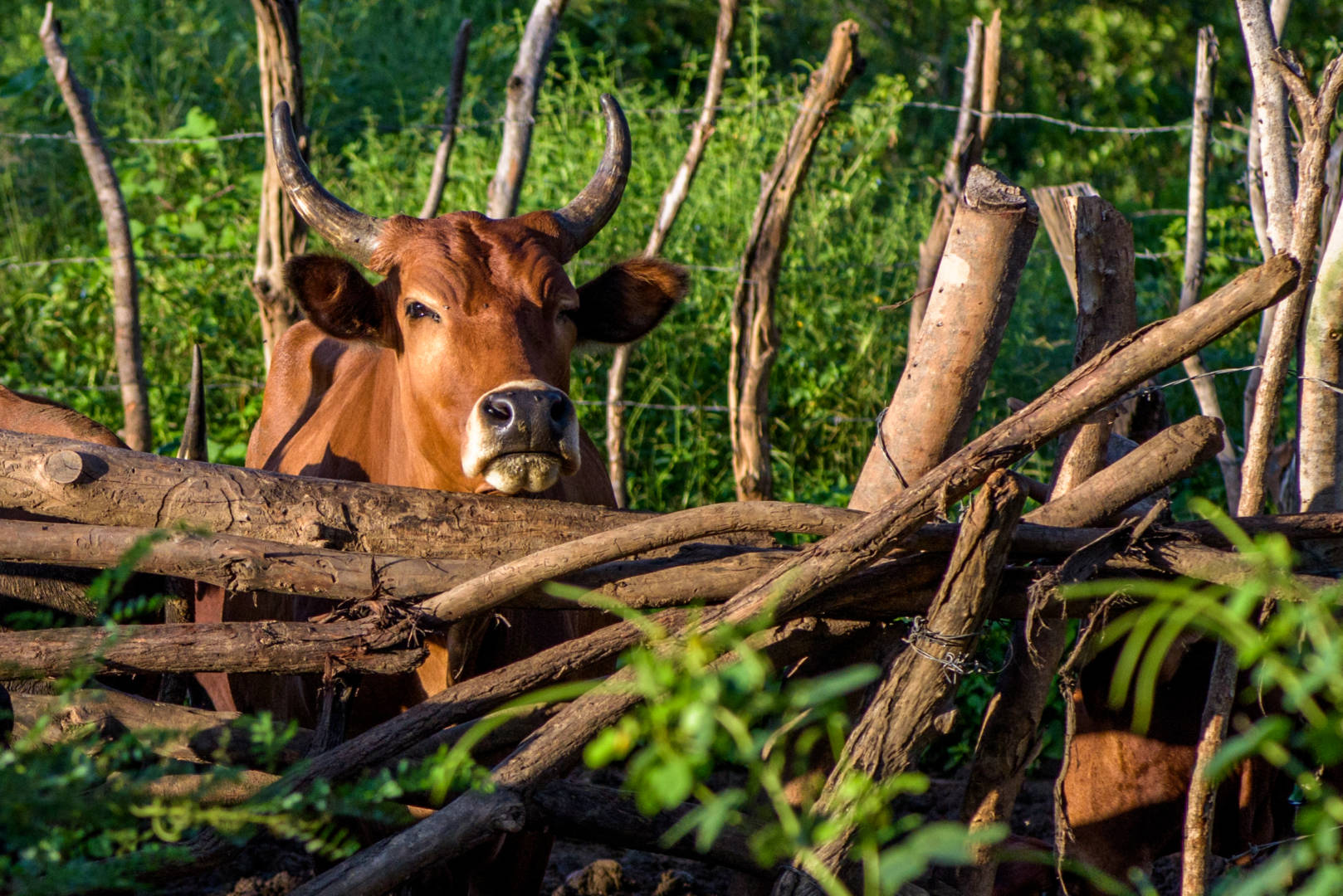
“As a result of all these things put together, we are food secure despite that we are experiencing drought now. Hunger is a thing of the past now because we do not depend on maize alone for our survival,” says Esnart. “World Vision already laid a foundation for us, which has made it possible for us to survive even when times are hard, as the case is now.”
Much of Zambia depends on Sinazongwe’s Lake Kariba for its hydroelectric power. With the water levels receding, many parts of the country face rolling blackouts to try to conserve electricity.
El Nino has led to drought across southern Africa, causing crops to fail and people in southern Zambia to face hunger. Thanks to the chicken savings banks and the work that World Vision had done to train farmers on drought-resistant crops, many of the families within World Vision’s Area Development Projects (ADPs) aren’t feeling the pangs of hunger.
A better life through education
and child sponsorship
A better life
through education
and child sponsorship
Esnart wants her children and grandchildren to have access to a better future. “I chose to educate my children because I wanted them to live a better life later in the future, not a difficult life, like what I had myself,” she says.
The animals allow her to keep Resheal and Bee in school, something she couldn’t do for Under. The young man tested well in exams and wanted to be a doctor. Sadly, that’s a lost opportunity for Under.
Leaving school early meant that he didn’t learn to speak English. In Zambia, the more profitable jobs require fluent English. That means lost income potential for Under. He yearns to be setting an example for his younger brothers. “I should’ve been supporting my siblings,” he says. “My siblings were supposed to look up to me.”
Bee and Resheal both dream of being doctors, so perhaps Under has been more of an influence on his brothers than he knows.
One thing that’s certain, Chansa looks up to Resheal. They spend much of their free time together when Resheal isn’t at school. (Zambian children attend school for three months, followed a month off throughout the year.) When they’re not playing, sometimes Resheal brings Chansa with him to get water from a nearby borehole. What Chansa really wants to do is go with Resheal when he herds the goats. But Resheals tells him that he’s too young and needs to wait a little while longer.
The goats arrived a couple of years ago for Resheal — also coming through World Vision’s Gift Catalog. He feels so responsible for them that sometimes he’ll skip lunch out in the field because he worries that something might happen to them. When he first got the goats, he put them inside their pen and says, “I spent time gazing at them. ”Like the chickens, the goats multiplied. Now they have more than 30 goats.
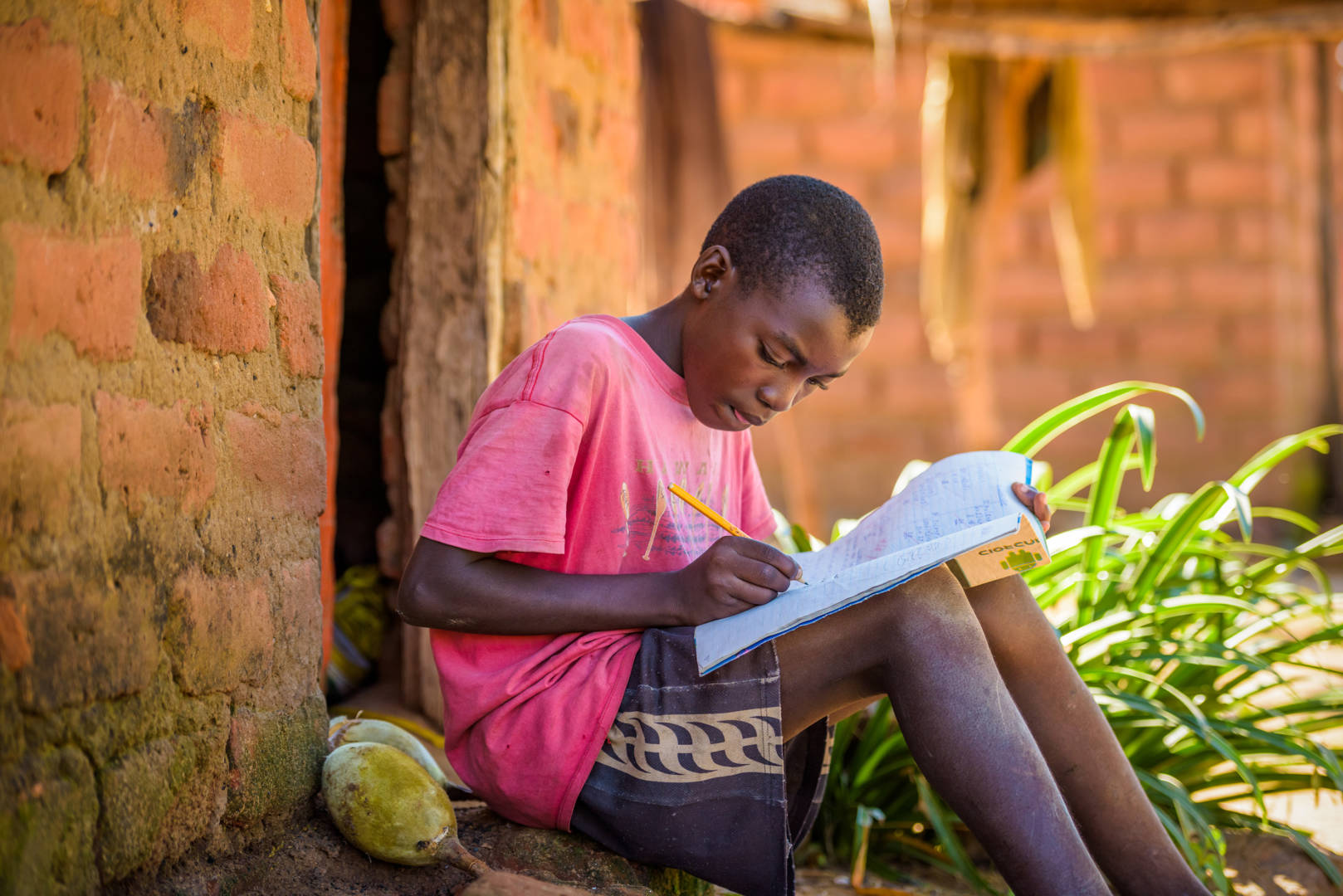
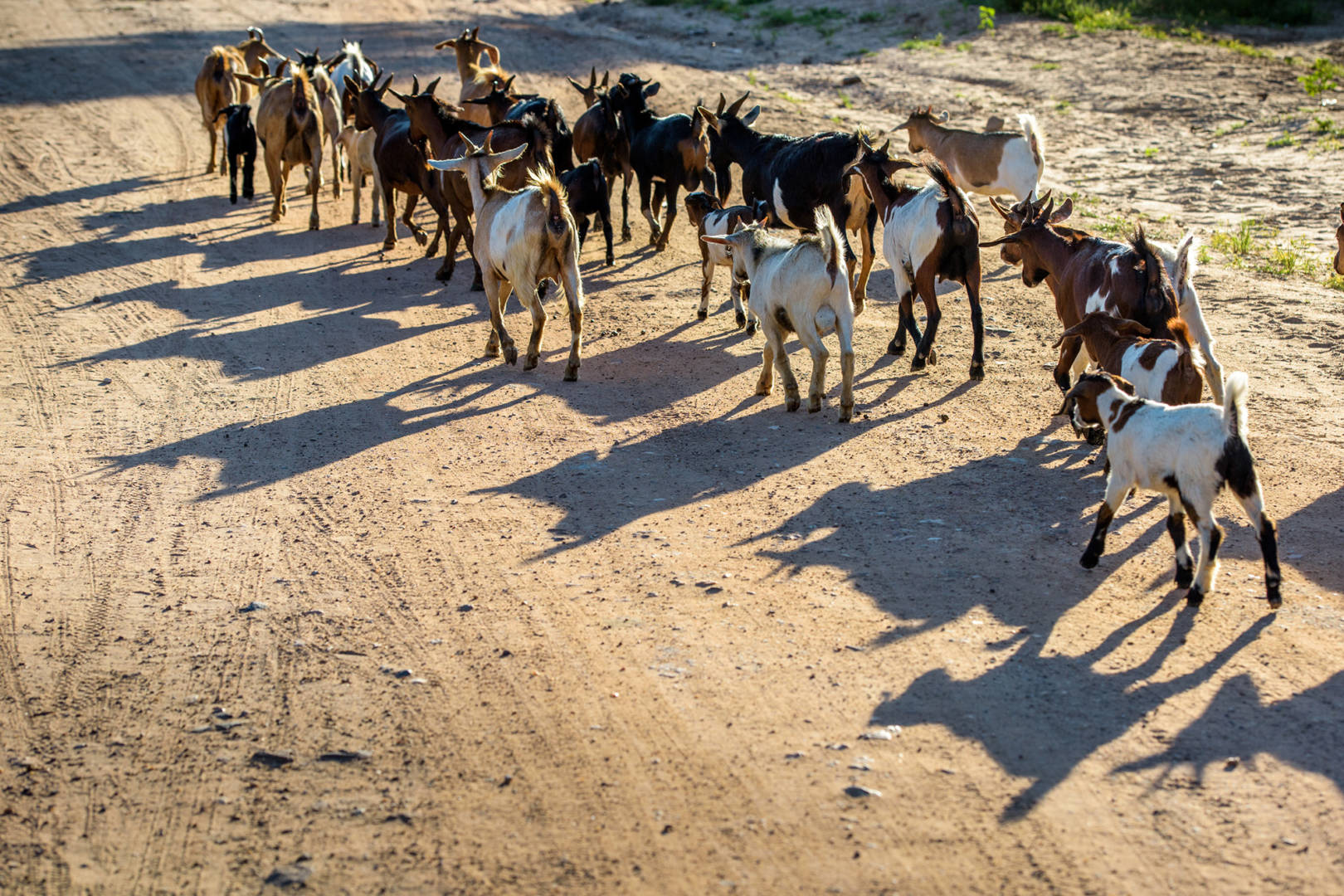
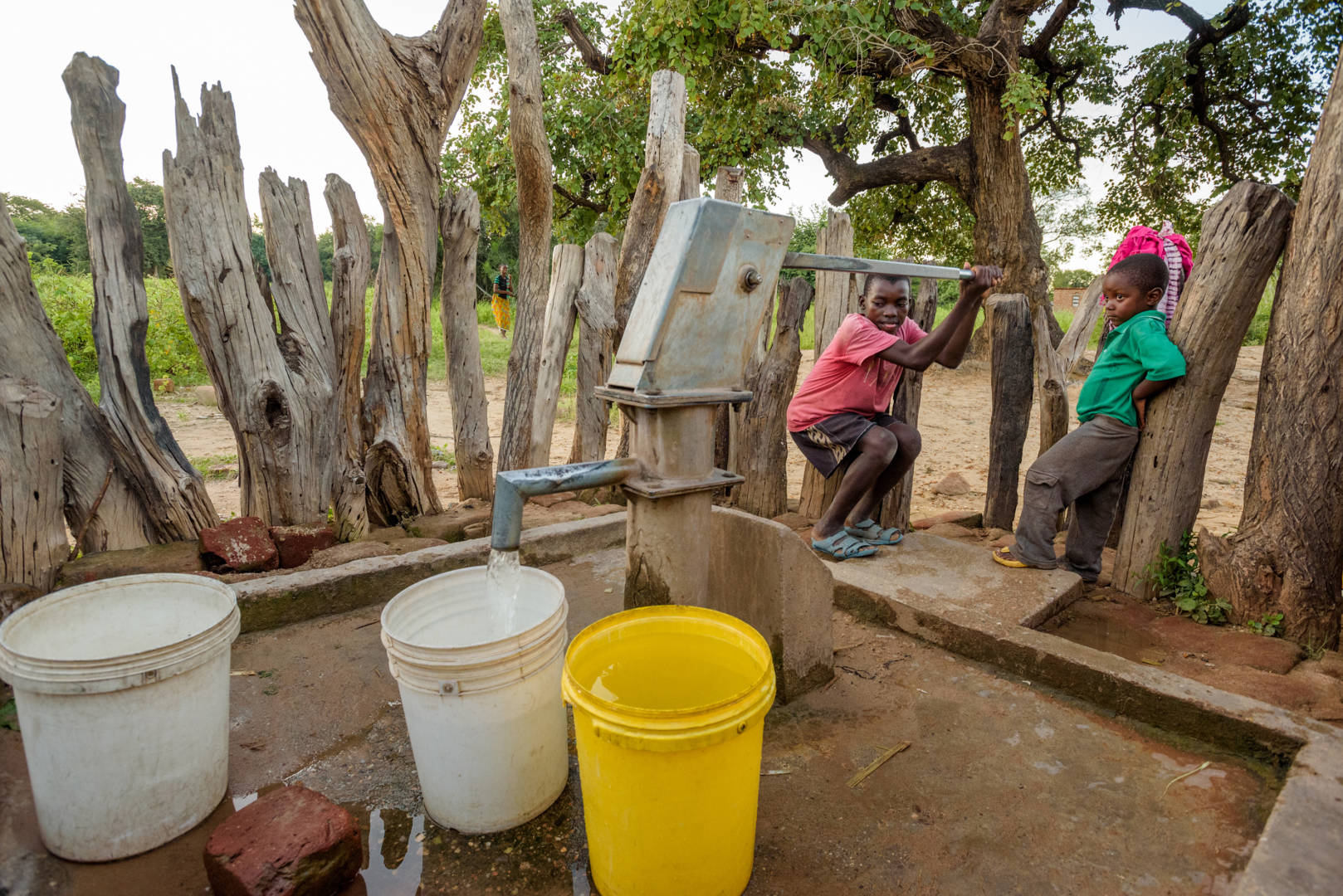
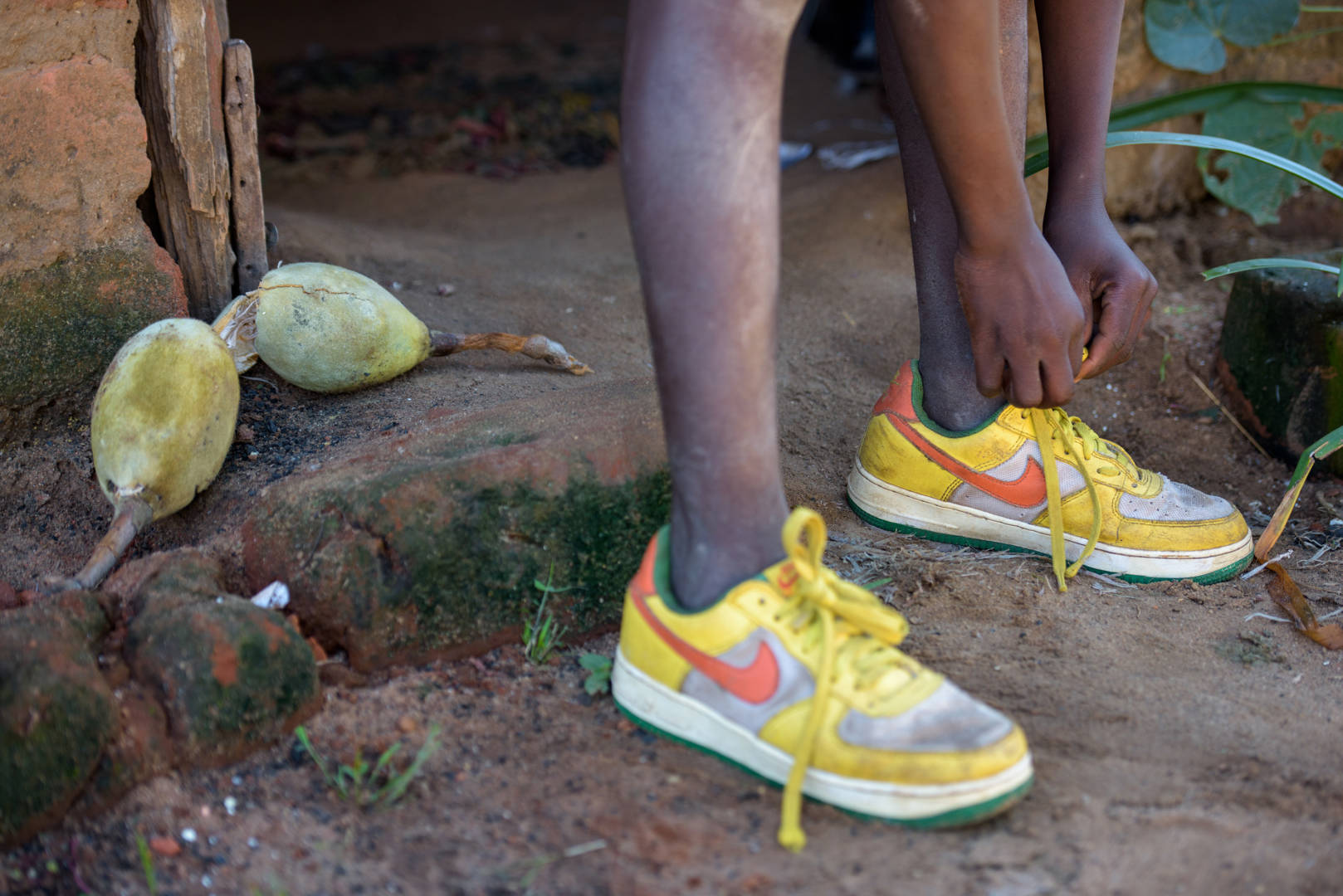
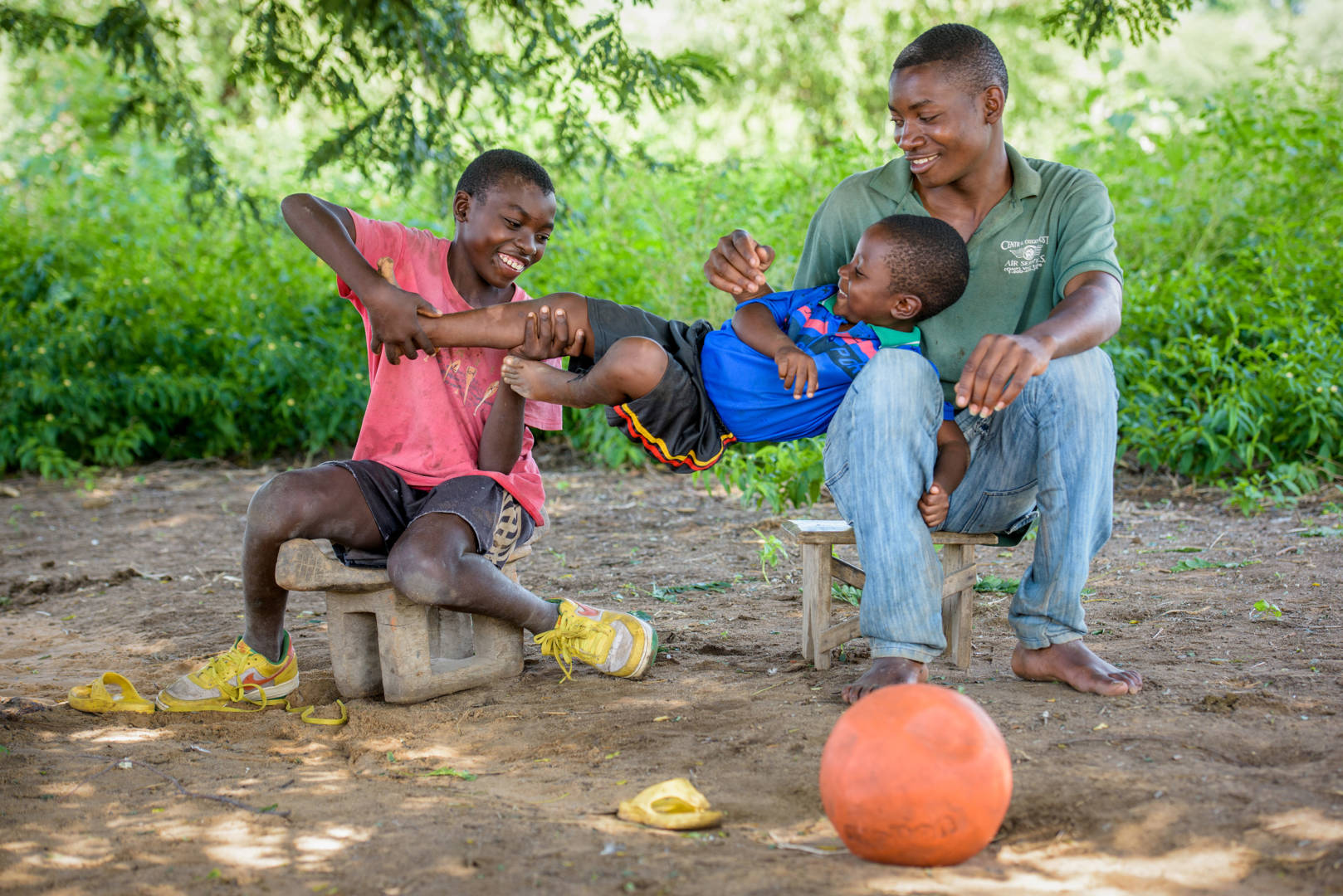
The animals aren’t the only benefit World Vision has offered to Esnart’s family. Bee, Resheal, and Chansa all have sponsors in the United States. Bee’s and Resheal’s sponsors have written letters, encouraging both boys to pursue their studies — advice they take to heart.
Resheal’s sponsor sent him clothing. Bee’s sponsor donated extra gifts, which allowed Bee to reroof his room and also to buy a wooden bed — the first bed he’s ever owned. Bee says, “If we meet or see each other, mostly I would want to thank him so much from the bottom of my heart because he has done so much to help me.”
Esnart considers the sponsors to be friends of her sons and grandson.
Starting to save
Starting to save
In 2011, World Vision began savings groups in the Sinazongwe community. These groups helped to change the mindset of people in Zambian rural communities.
Owen, the community development worker, explains that it used to be if someone had small amounts of money such as 2 or 5 kwacha, they would just go spend it, because they couldn’t see the value of saving such a small amount.
World Vision explained that the tiny amount, when saved in a savings group, could result in earnings of up to 20 kwacha. That’s a sizeable sum of money in these rural communities.
These savings then are available to members to borrow. They’re encouraged to take loans because the interest on repaid loans increases everyone’s earnings. Each group sets their loan repayment period to between 6 months and a year. They also determine interest rates, although most groups tend to set it to around 10%. Owen says he’s seen lots of changes as a result of the savings groups in his zone. Some women have been able to build new homes or shops. They’ve paid school fees for their children, bought livestock, and bought nutritious food for their family.
“The savings groups have proved to be [one of] the best of World Vision’s interventions,” he says. “No group has stopped. They’re opening new ones all the time.”
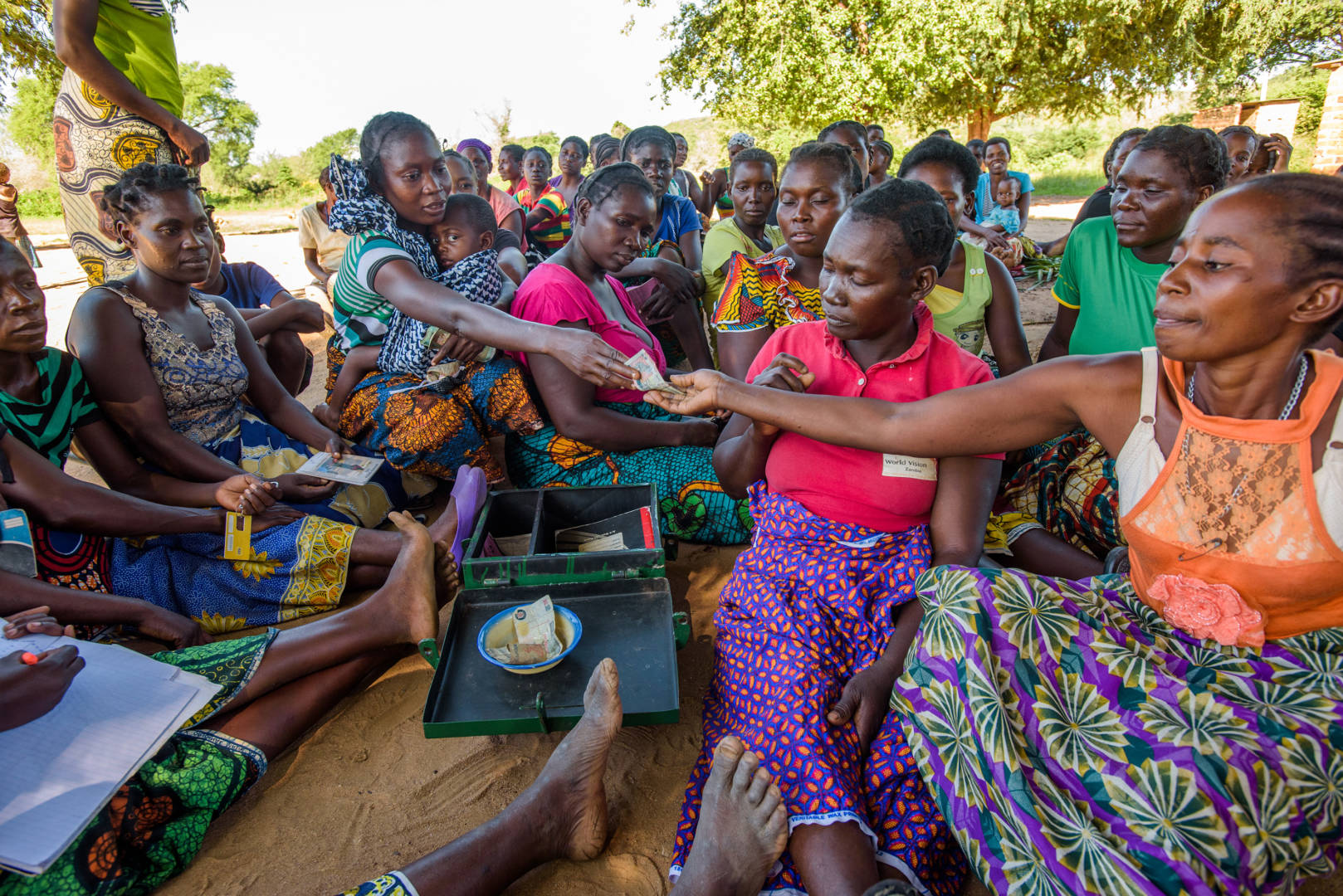
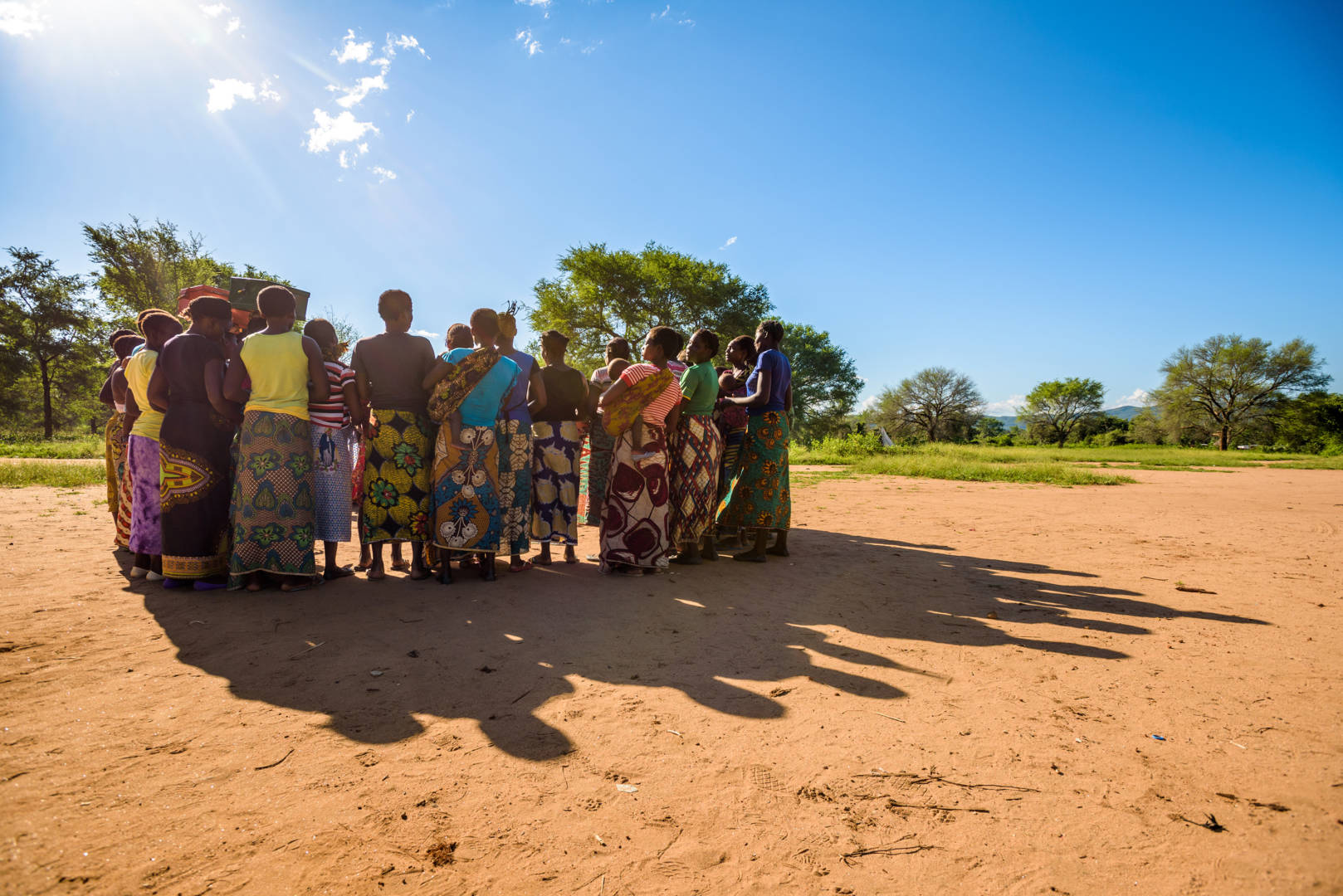
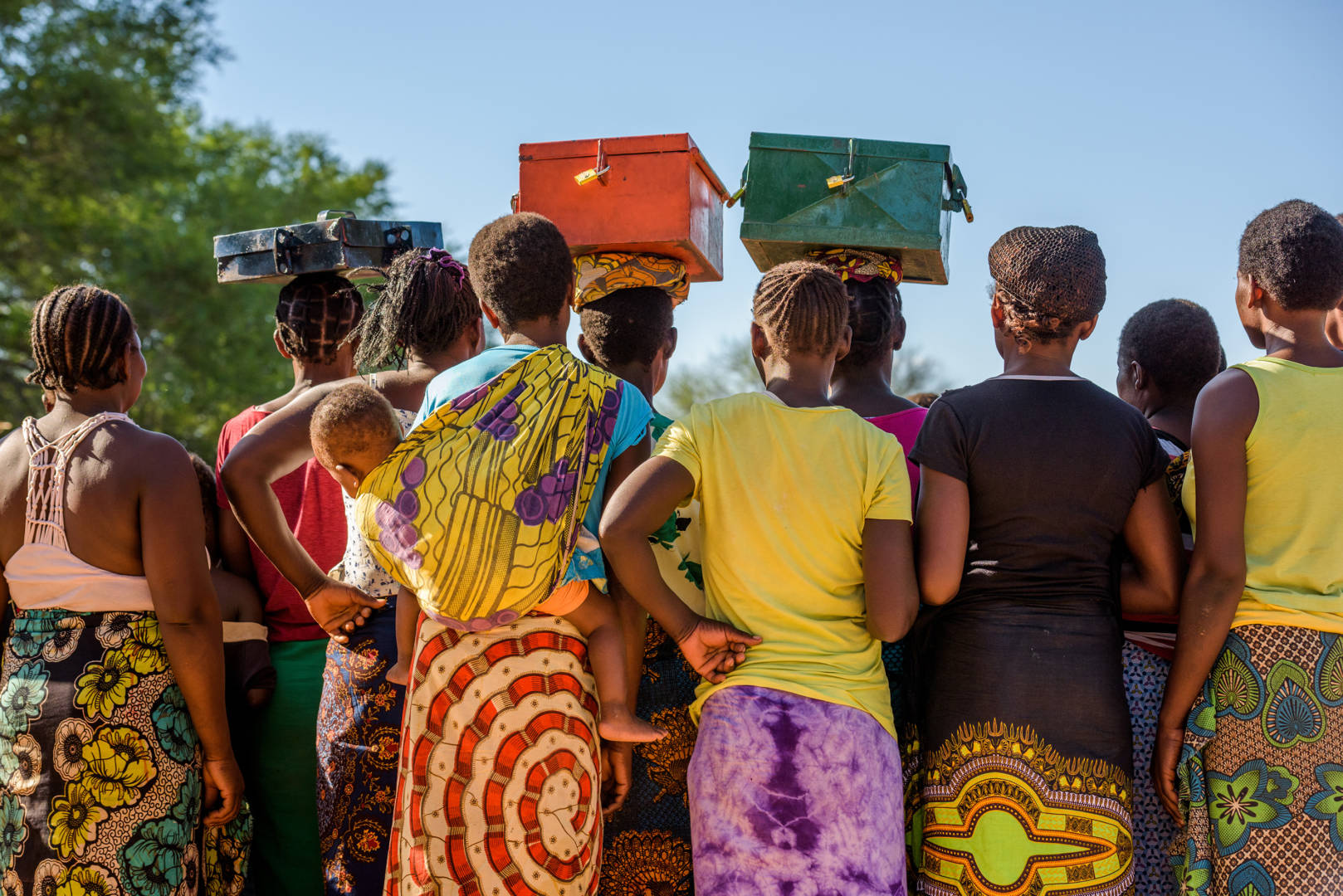
Esnart embraced the savings groups. She’s even become a trainer, which means she visits savings groups around the country, teaching them about the process.
Esnart dreams big about her own future. She’s started a small business selling fish from Lake Kariba. She plans to borrow money from the savings group to expand her that business by buying a refrigerator in which to store the fish. She now owns property in town now and just needs to build on the land. Then she’ll rent out the homes when she’s finished. She’s always seeking to diversify so she’s not dependent on one thing to support her family.
The savings group has also opened up higher education opportunities for her children. Owen says, “Bee is now at a boarding [high] school. On her own, she could not have managed.”
Zambia recently passed new legislation requiring elected government officials to have completed their education at least through twelfth grade. Owen says proudly that now people in his community can be part of governing their own country because education has become more accessible, thanks in part to World Vision’s work in communities like Sinazongwe.
Neither Resheal nor Chansa seems interested in politics at this point in their lives, but it’s great to know that the option is open should they decide to pursue a future in government.
Resheal is already starting to work on his medical skills. When his elderly grandmother stepped on a thorn, he tenderly pulled it from her gnarled foot. It was good practice for the 9-year-old doctor in waiting.
“I want to be treating people. I want people to live a healthy life and I would want to take people out of their old life,” he says, his megawatt smile lighting up his whole face.
Esnart knows that due to the foundation laid by the Gift Catalog chickens and the ongoing support of sponsorship and the savings groups, she’ll have the money she needs to support his education.
“He will help the nation as a whole,” she says. “My dream [for Resheal] is that he would have a fruitful future; that he would have a productive future.” She wants him to be self-sufficient, but also willing and able to help others in need.
A loving
example
A loving
example
Helping others is so important to Esnart that she’s already instilled it in her children and will do so to her grandchildren. She knows the ramifications of desperate poverty.
She understands the physical and psychological effects it imprints on people.
Most of the people in southern Zambia belong to the Tongan tribe. Tongans measure worth by the number of animals owned. “In the past, when I lacked all these things, nobody could even walk to my home,” says Esnart. “They shunned me because I was poor.”
Now many people in need come to her. Esnart refuses to turn them away. If someone asks for a chicken to feed their family, she gives it to them free of charge.
Her faith enables her to forgive. “I need to show them an example of how they need to live,” Esnart says. “God is using me, not just for my well-being, but also for the well-being of others.”
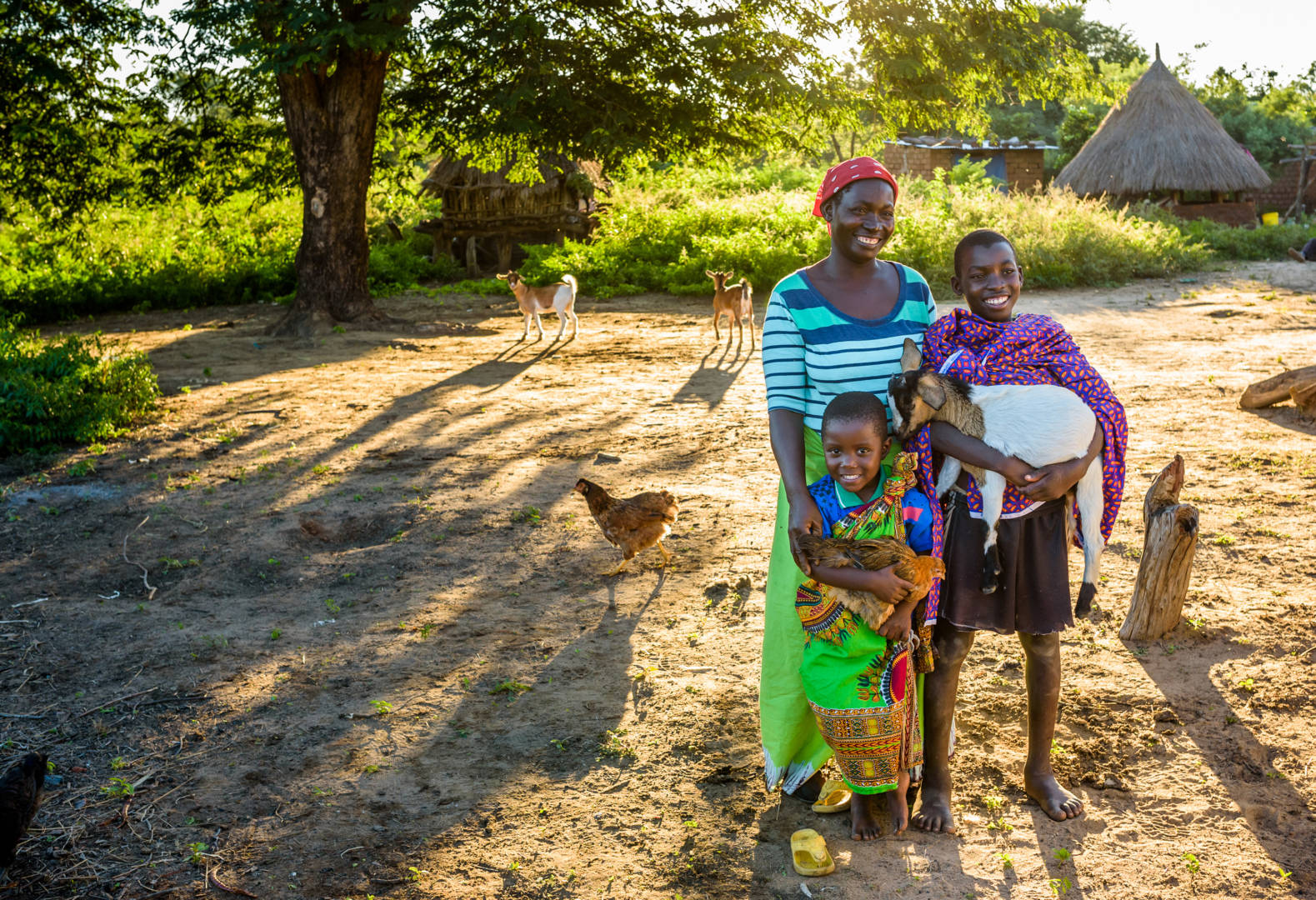
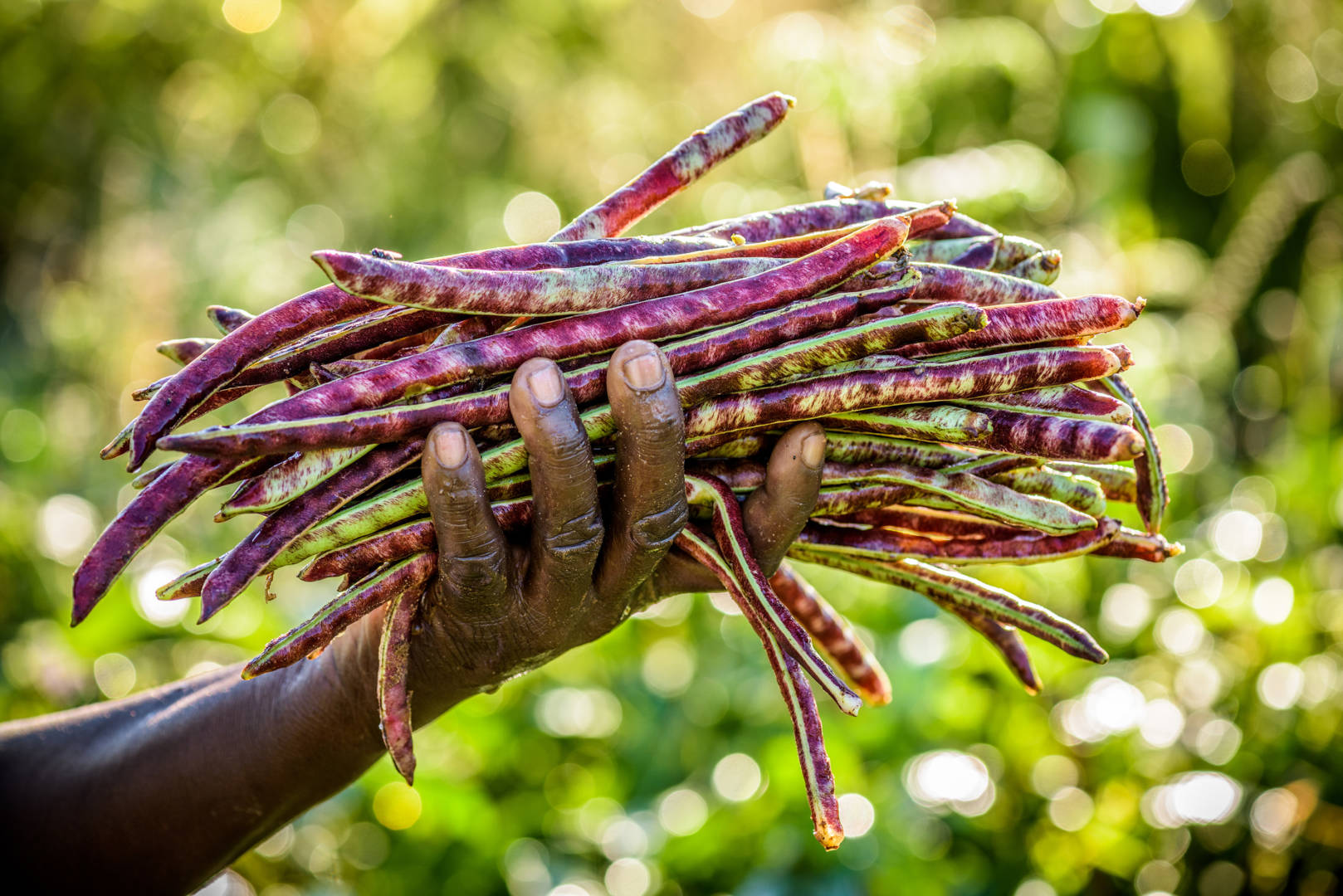
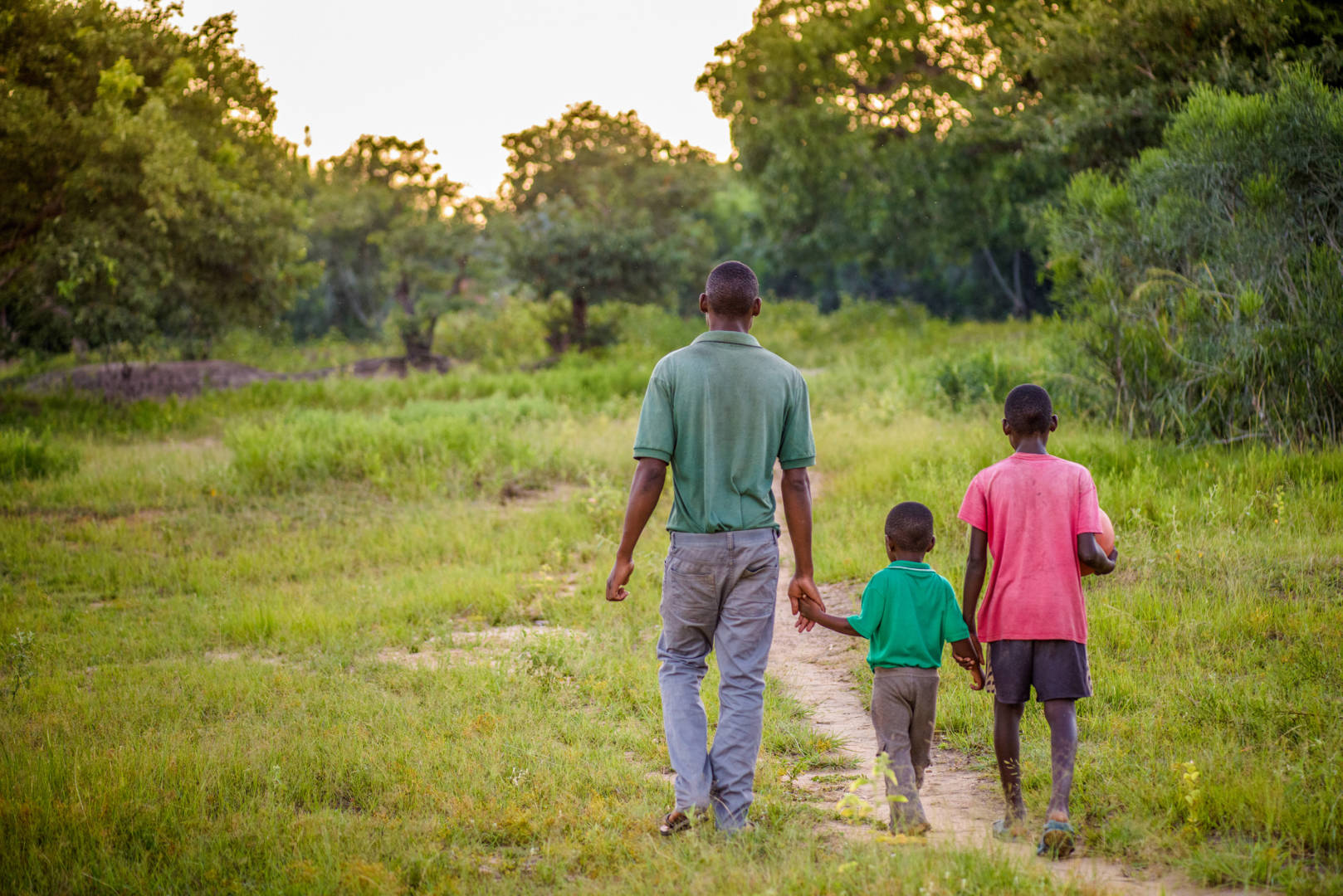
Her example has taken root. Bee says, “One friend came and said he did not have a blanket. I did not deny him one because I realized problems need to be shared. So, I gave him a blanket. They say the hand that gives is blessed.” Shortly thereafter, World Vision provided Bee with another blanket.
Chansa and Resheal are learning these same lessons in generosity, but thankfully they haven’t learned the hard lessons of want. These boys don’t have to wonder where whether a meal is coming. They won’t feel hunger gnawing at them as they struggle to learn.
Instead, they will be free to grow to their full potential, and that’s an overwhelming desire for any parent.
Through the gifts of chickens, goats, and sponsorship, Esnart’s faith has grown. “It has made me realize that God came like sending his own angel to come before me,” says Esnart. “Those years I spent struggling and praying, he heard me and answered by sending that angel.”
Who would have ever believed an angel taking on the form of a chicken?
